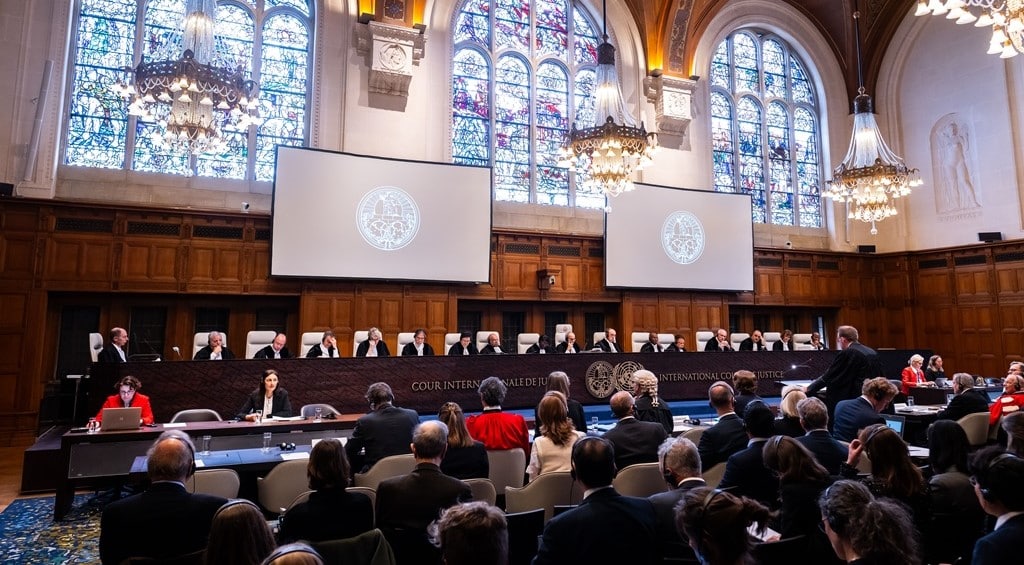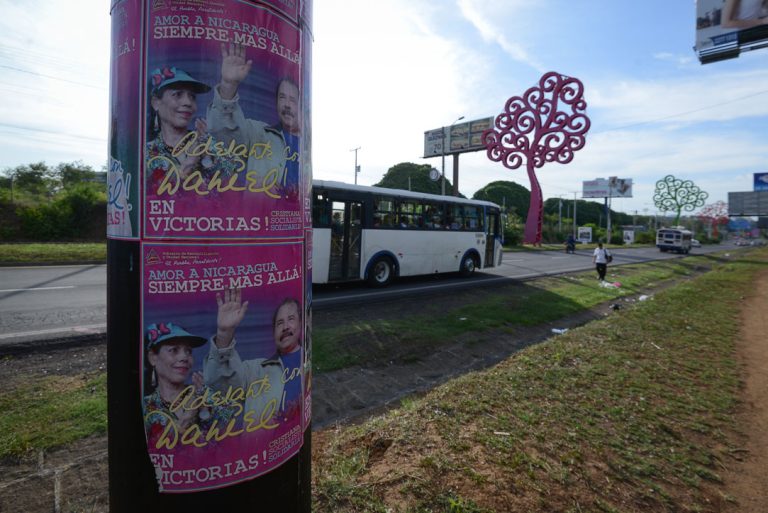25 de octubre 2016

ICJ Rules Against Nicaragua's Request For Germany to Halt Arms Sales to Israel

PUBLICIDAD 1M
PUBLICIDAD 4D
PUBLICIDAD 5D
Apathetic citizens face the ritual of a one-party election

Courtney: "será la cuarta elección consecutiva con incumplimiento grave de principios de la Ley Electoral" en Nicaragua en elecciones generales
On the highway to Masaya, some banners present the candidates from political parties that are competing for the presidency and for seats in the National Assembly. On some of the city’s streets, you can count (on your fingers) the posters of these same candidates, which are falling apart due to the heavy rains we had last week.
On streets, at bus-stops, bus stations, universities, neither the banners nor the posters have had an influence on the capital’s society. Citizens who were surveyed by Confidencial don’t know who the candidates are (in addition to Comandante Ortega and his wife) for the presidency and National Assembly.
Maria Jose Casco, a Graphic Design student at the Central American University (UCA), said that she didn’t know who the other candidates were who were running in the November 6th elections.
“Honestly I don’t, I don’t know, sometimes I’ve seem them pop up on the TV, I’ve seen Arnoldo Aleman’s wife, who I can’t remember her name, and I don’t know about any others,” Mayra Castellon remarked.
Government party sympathizers are aware that Ortega and his wife are the candidates for the Sandinista Front; however, they don’t know who their competition is.
“The Comandante, his wife Rosario, and others, but I don’t know who they are,” claimed Jose Antonio Corea.
“The only one I know is Daniel, nobody else,” said Marvin Salgado.
Limited election campaign
Citizens surveyed by Confidencial all agree on the fact that this election campaign has been very minor by the political parties involved, but they haven’t dismissed the fact that this could increase in the lead up to election day.
“The candidates proposals are rather confusing, they haven’t been made very clear so that the people can understand,” reflected Carlos Contreras, a university student.
“I haven’t seen any campaign, what campaign? I haven’t seen anything yet,” stated Danelia Tellez.
Citizens doubt the credibility of the electoral process, due to the limited “opposition” that the governing party will have to face.
“This is all a farse. The Sandinista Front will always win, the others (parties) are just there so they can say they had competition,” Jaime Hernandez pointed out, a Business Management student.
“Look, those 150 million that they’re spending, let them put it towards building roads, schools and churches for the people,” said Roger Rivas.
According to those people surveyed, going to vote or not in the upcoming November elections has more to do with it being a civic duty rather than for choosing a candidate that meets their expectations.
“There’s no point in voting, we already know who is going to win,” claimed Katherine Gaitan.
“Just like every other citizen, we have to vote, we have to fulfil our duty,” mentioned Rafael Vilchez.
“It’s our right as citizens and we have to choose our president again,” added Ilario Guevara, a salesman at the Roberto Huembes Market.
With regard to the lack of electoral monitoring, Nicaraguans believe that this could affect the credibility of the process, while others remark that it won’t matter.
“At the elections, there will only be their own opinions. Everything has been monopolized, there isn’t any transparency or democracy,” claimed Maribel Torres, a university student.
“It won’t change, because you have to inspire confidence in other people,” said Carlos Fonseca.
“All of this process should be monitored, all past elections have been supervised, and in not doing so this time, there will be mistrust,” stated Alejandto Gonzalez, a salesman.
PUBLICIDAD 3M
Periodista. Investiga temas de medio ambiente, corrupción y derechos humanos. Premio a la Excelencia Periodística Pedro Joaquín Chamorro, Premio de Innovación Periodística Connectas, y finalista del premio IPYS en el 2018.
PUBLICIDAD 3D